TerraMaster F5-422 Server Workloads
We will run Server benchmarks for Database, OLTP, Email, Archival, and Web-based workloads.
Database Workloads
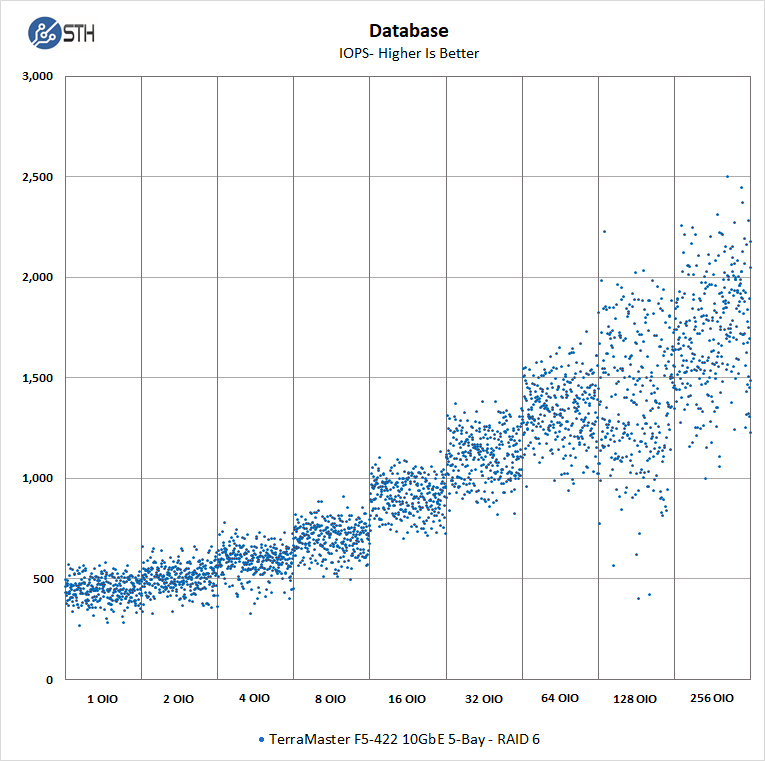
The Database benchmark is a read-heavy test and also measures both Read and Write operations.
Online Transactional Processing (OLTP) Workloads
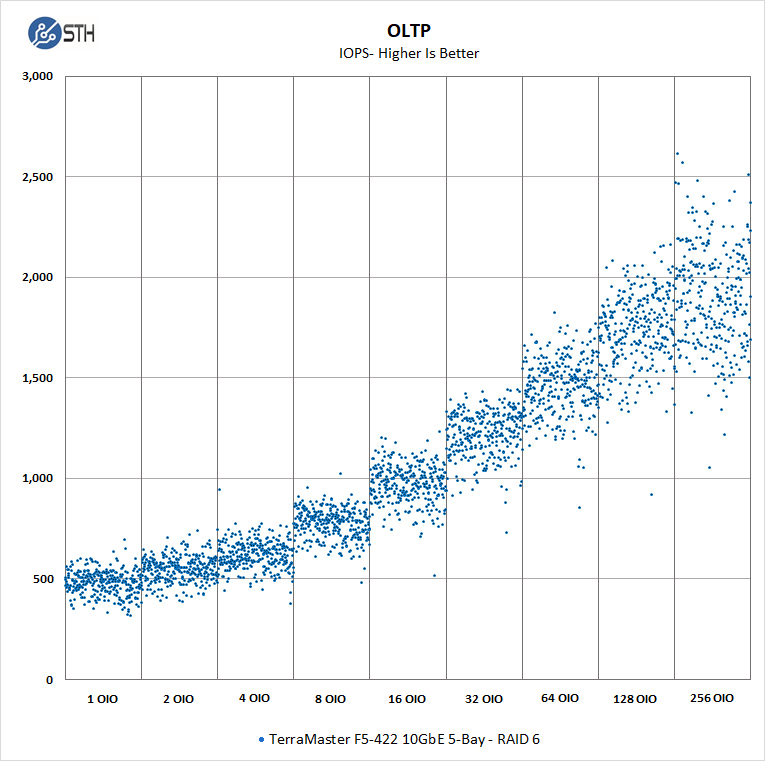
Performance for OLTP benchmarks follows Database results.
Email Workloads
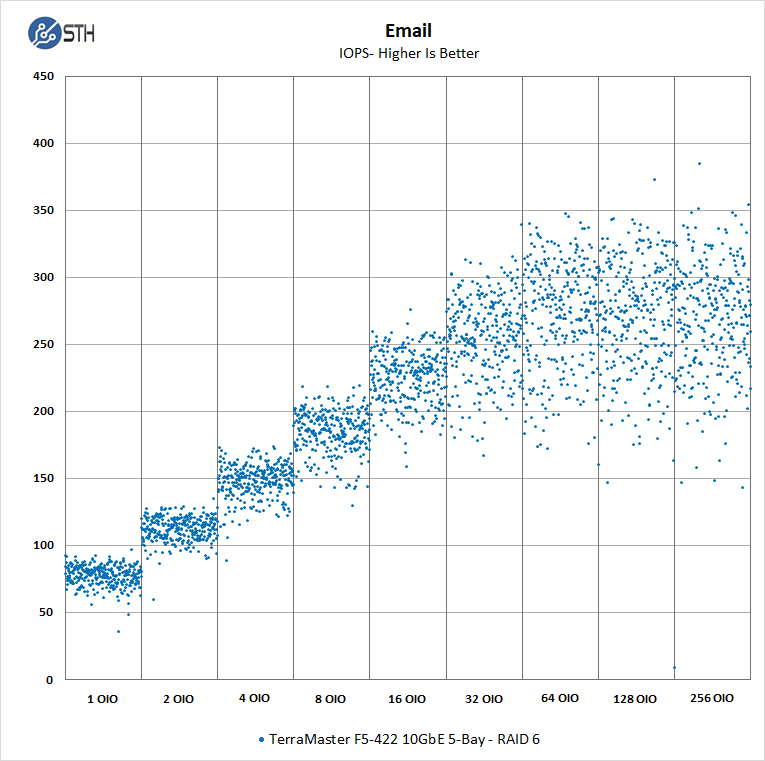
Archival File Server Workloads
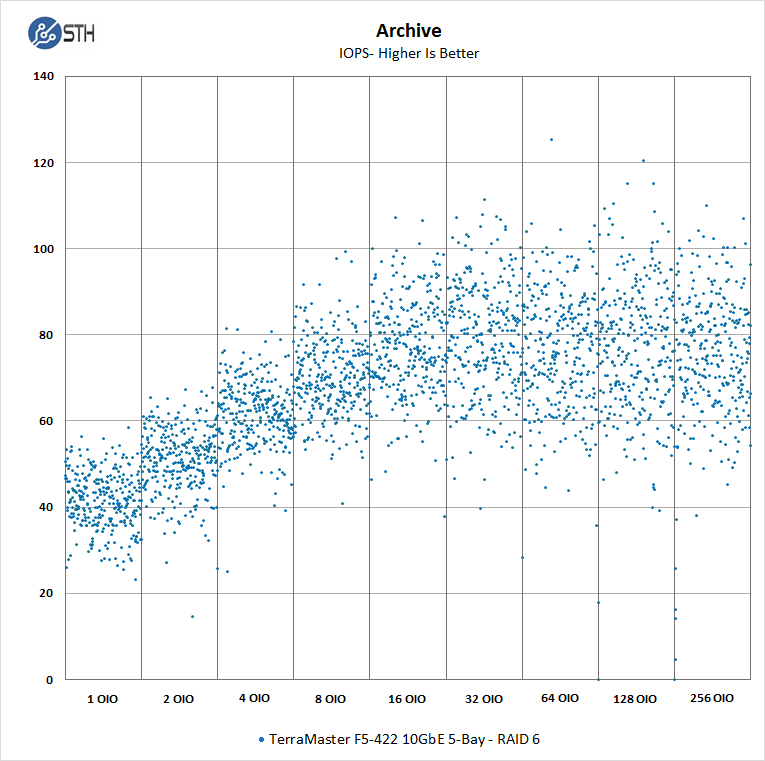
The archive test comes from Dell’s performance lab. This test measures performance with a mix of different block sizes, random and sequential data, and a mix of reads and writes. If you use your NAS for several roles at the same time, this is similar to how your server sees the different workloads with data moving in and out at the same time.
Web Server Workloads
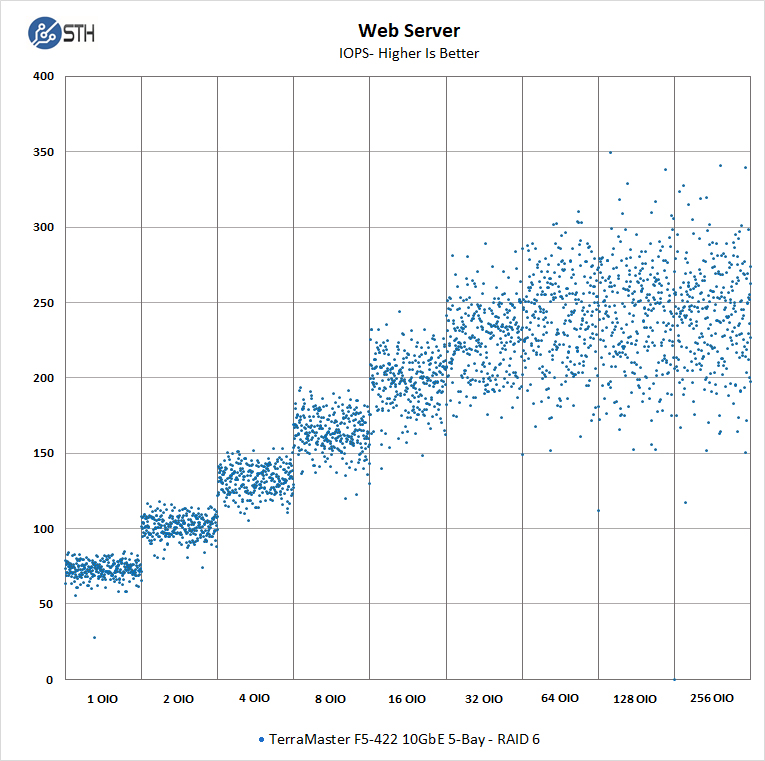
Our Server benchmarks stress our TerraMaster F5-422 a great deal having a difficult time maintaining a solid median line. After 16 OIO’s the median line breaks up into a large number of outliners, this is where a higher-performing processor and increased RAM capacity would help.
In the market that this unit is targeted for, 16 OIO’s and above will be uncommon to see.
Final Words
TerraMaster expands its diverse line up of affordable NAS boxes to include the company’s first 10GbE solution, the F5-422 5-Bay 10GbE desktop NAS. Home and SMB users are starting to look at 10GbE solutions as they have become more affordable. TerraMaster is jumping on that trend to provide users with a wide range of solutions to fit many use cases.
Home users might not need SSD Caching to improve performance, but SMB users might like to see this feature. The F5-422 includes SSD Caching but at the expense of drive bays that will cut into storage capacity, other vendors include bays or ports for SSD Caching.
Another feature we would like to see is adjusting the 10GbE MTU settings; the F5-422 is locked at 1500 and not adjustable.
At the time of writing this review, the TerraMaster F5-422 is going for $599, which is $100 – $150 cheaper than other solutions we have reviewed. TerraMaster is hitting excellent price points for the cost of entry into the 5-Bay 10GbE arena. Its performance is plenty to meet a variety of needs.

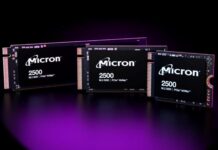
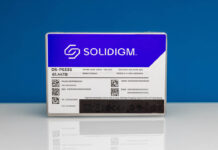

Hope this trend continues. I think a lot of readers view this as a sweet spot with HD count and 10gb. Of course I wish the prices was half of what they are but hey this is low volume prosumer gear. I would like to add that just a case for 4 or 5 hard drives with nothing else costs north of $100 (new). I’m using a small dell tower for my personal nas and was looking for a convenient way to mount the drives… double sided tape and a case fan were more in my budget xd
What about power consumption at idle, 4K transcoding etc … ?
I’d be interested in seeing results from a raid 10 or 0 array, just to see the best possible numbers this box can dish out. (understanding the disadvantages of not having any protection in raid 0, and the loss of extra capacity at raid 10).
I think it would be good to precise what file system is used on the Test Setup for the different NAS storages compared.
Because from my understanding TerraMaster F5-422 is using Btrfs file system by default, which some are accusing of delivering lower throughput, especially in high I/O demanding processes and when using 10GBe connection (the bottleneck could be far less visible for 1GBe connection). This is why QNAP doesn’t want to support Btrfs for now.. And while Synology support Btrfs, I’m not sure it is set by default.
In addition F5-422 supports EXT4 also, so maybe the performance could be a little better with different file system?
> After turning on the NAS, connecting it to your network, type in “start.terra-master.com” in your browser to bring up the Quick Installation Guide.
I would not buy a NAS that requires internet and manufacturer’s website to be able to configure my local device. Would it be a brick if their website gone down?